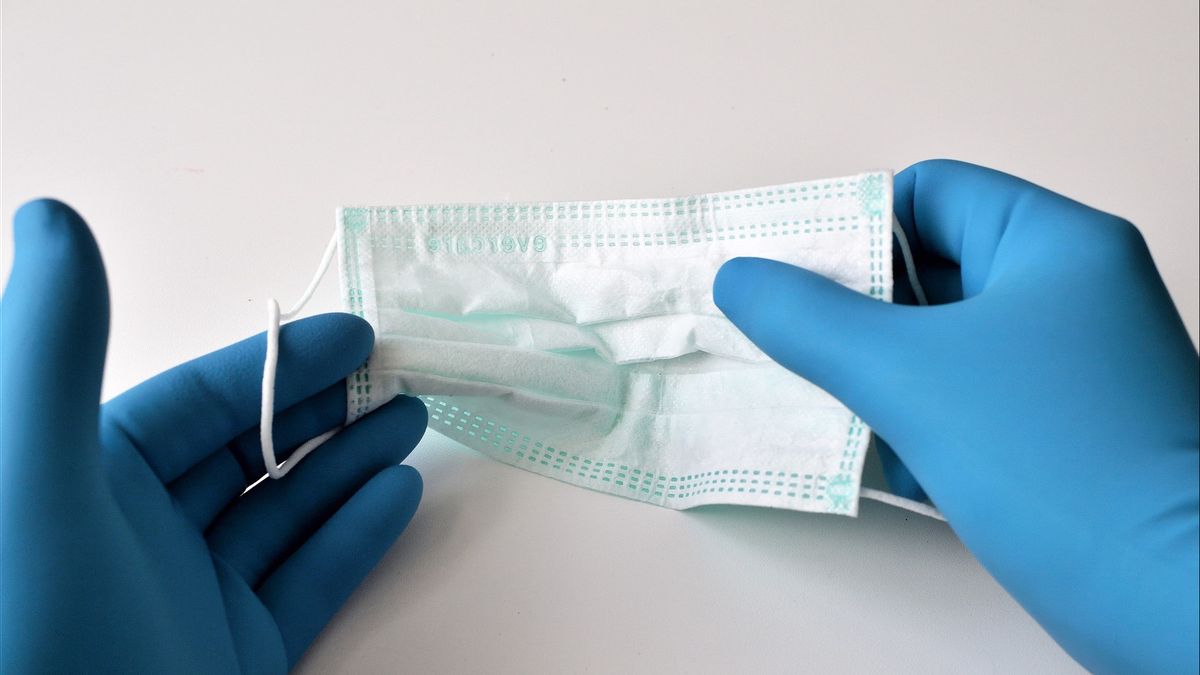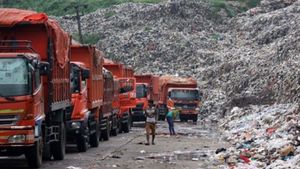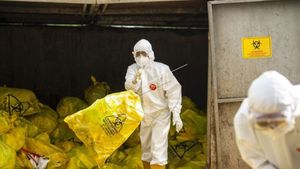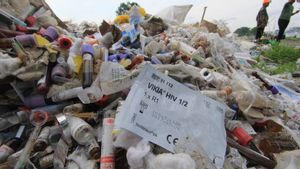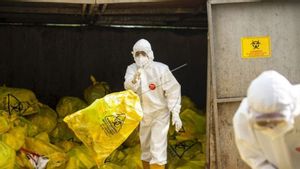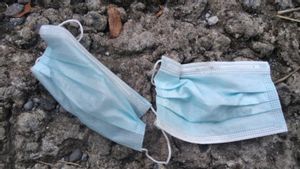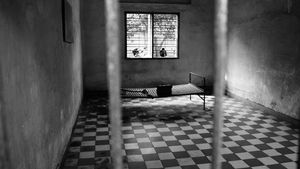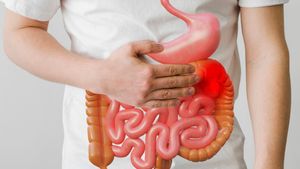JAKARTA - The COVID-19 Task Force stated that the amount of medical waste during the COVID-19 pandemic had increased many times. In fact, this increase has the potential to cause transmission of the virus.
"This medical waste is dangerous to us. What are the dangers? It can be infected if it is in the waste, bacteria, and viruses that can make people infected," said Lia Partakusuma, member of the handling of the COVID-19 task force in Menteng, Central Jakarta, Saturday, December 18.
Transmission through medical waste is because COVID-19 can still live on inanimate objects, especially masks, for several hours.
So, when someone who is exposed to COVID-19 sneezes on their mask and throws it away, the virus will stay on the mask.
It is at this moment that the potential for transmission occurs. This is because the masks containing the virus will be collected by the cleaning staff to be disposed of.
"The virus can stay on solid objects for up to 5 hours, some even for 3 days. Imagine using a tissue mask, we throw it away, taken by someone else, that person has the potential to be infected," said Lia.
On the other hand, said Lia, when COVID-19 cases were high, the waste of used masks in all health care facilities (fasyankes) rose very high. In fact, it reaches 493 tons per day. In fact, when compared to the previous only 75 tons per day. Thus, there has been an increase in the quantity of mask waste many times over.
What was previously 75 tons per day for this health facility, increased by 108 tons, rose to 300 tons per day, yesterday it increased to 493 tons per day," she said.
SEE ALSO:
Therefore, the public is asked to be wiser in disposing of mask waste. Thus, the potential for transmission of COVID-19 can be reduced.
The transmission of COVID-19 through waste masks has also been proven. The DKI Jakarta Environment Agency noted that 100 of its members who served in Bantargebang were exposed to COVID-19.
They are suspected to have been exposed to the mask waste that was thrown away with household waste.
"Many cart officers don't understand that there are houses that have COVID-19 patients or not, then all the garbage is put together, put in trash cans, and then to Bantargebang," said Head of the DKI Jakarta Environmental Agency, Asep Kuswanto.
The hundreds of officers were exposed during the second wave of COVID-19 in Jakarta. At that time, the people of the capital city produced 493 tons of hazardous and toxic (B3) waste such as masks per day.
Moreover, the cause of transmission to the Environmental Service officers was because they did not use personal protective equipment (PPE) when managing the medical waste.
"Our officers were exposed to COVID-19 because of the waste of masks," said Asep.
Therefore, Asep hopes that the community will be more concerned about this condition. One way that can be used is to separate medical and household waste.
Meanwhile, for B3 waste from hospitals, Asep explained that his party did not encounter any problems in its management. This is because the hospital has already done the sorting before it is finally distributed to the final disposal site.
"The garbage bags (from the hospital) are special. From there, our third-party will transport them," said Asep
The English, Chinese, Japanese, Arabic, and French versions are automatically generated by the AI. So there may still be inaccuracies in translating, please always see Indonesian as our main language. (system supported by DigitalSiber.id)
